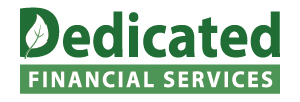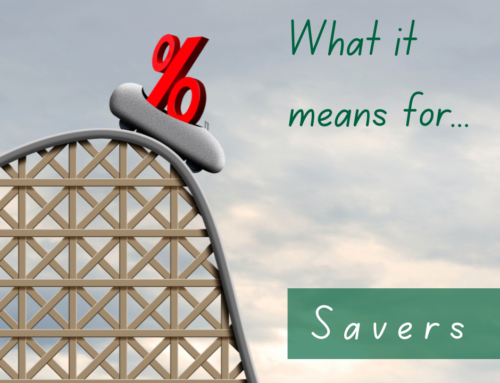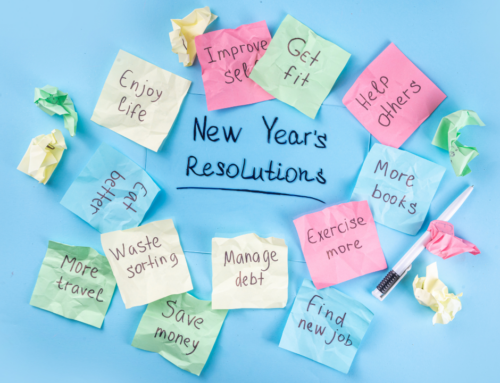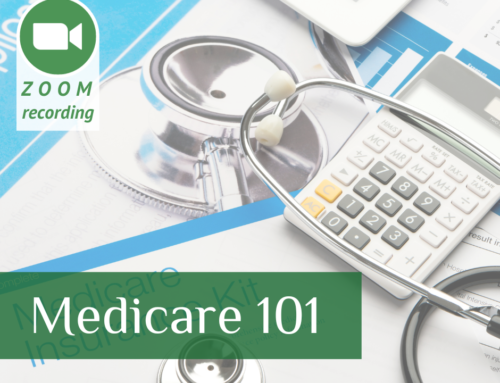It’s almost the end of the year and many of us will be looking for a fresh start in 2024. One of the best ways to start a new year off is to enter it with less credit card debt. Credit card debt is often the highest-interest debt people have. That means the longer you keep a balance, the harder it will be to pay it off.
Even though the new year is quickly approaching, there are things you can do now to shave hundreds of dollars off your credit card balance. GOBankingRates spoke to financial experts for their best advice on lowering and eliminating credit card debt to set yourself up for a successful financial future.
Break Down the Goal Amount You Want To Pay Off Into Smaller Goals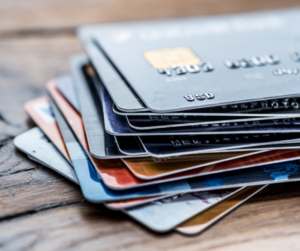
“The absolute first thing you need to do is take a look at the number you need to pay off and break it down,” said Michael Foguth, founder and president of Foguth Financial Group in Brighton, Michigan. “If the number is large, break the number down into smaller, more attainable weekly numbers. For example, if you owe $2,000 and you have eight weeks left to pay it off, you will need to allocate $250 per week toward your debt.”
Start With $1
If paying off a large chunk of your balance seems overwhelming, it’s fine to start small.
“Sometimes, the hardest thing to do when it comes to paying down debt is just getting started,” said Kevin Panitch, founder of the personal finance website Just Start Investing. “Depending on the total debt you have, it can seem insurmountable at times, but it’s not. The best thing you can do at the end of the year is to just get started. Even if you don’t get to a fully clean slate for the start of 2020, having an action plan and a start to paying down your debt is a good first step.”
Pay Off High-Interest Credit Cards First
Make the minimum payments on any zero-interest cards you have, so you can focus on paying off the high-interest credit card balances first.
“It really is a numbers game, and the client has to accept that they are making progress with each payment,” said Morris Armstrong, founder and owner at Morris Armstrong EA LLC.
Or Try the ‘Snowball’ Method
Paying off high-interest debt first is known as the “avalanche” method. Focusing on paying off credit cards with the lowest balances first is known as the “snowball” method.
“Some advisors recommend the ‘debt snowball’ — paying minimum payments on all debts except the one with the lowest balance, to which one applies all of the remaining monthly budgeted amount,” said Rob Drury, executive director of the Association of Christian Financial Advisors. “Once that account is paid off, move on to the next smallest, and so on. This is so that one is motivated by the rapid initial progress, making it easier to maintain that momentum. Others suggest concentrating on the highest interest rate account — the ‘debt avalanche’ method — because this makes a greater mathematical impact. Mathematically, the difference is usually relatively minimal, but the debt avalanche produces a quicker result. Bottom line: do whichever works and feels the best, and don’t quit until the debt is gone.”
Ask Your Card Issuer To Reduce Your Interest Rate
Another way to reduce how much you owe is to convince your credit card issuer to reduce your interest rate.
“You may mention that you’re considering a balance transfer card, but would prefer to maintain this card if the interest rate is lower,” said Wilson Muscadin, financial coach and founder of The Money Speakeasy. “You may need to transfer [the call] to a supervisor or a hardship department, but if you have been in good standing for at least a year and have no missed or late payments, they may be willing to lower the interest rate rather than lose you as a customer.”
Stop Using All Credit Cards That Have Balances
“Do everything in your power not to use the card at all while paying it off,” Muscadin said. “Take it out of your wallet, remove it from the saved payment option in online sites or, in the extreme, you can cut it in half. Using a credit card while paying it off is like scooping water out of a boat with a leak in it. Plug the leak first and then scoop the water out.”
Cut Costs: How To Save Money on All Your Monthly Expenses and Bills
Dedicate a Percentage of Every Paycheck Toward Paying Down Balances
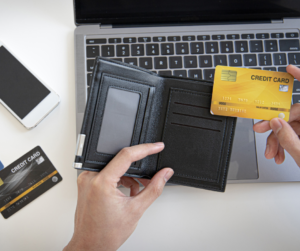 Calculate your monthly net income to see exactly how much you can dedicate each month to paying off your credit card debt.
Calculate your monthly net income to see exactly how much you can dedicate each month to paying off your credit card debt.
“Your net income is your monthly income minus your monthly expenses,” Muscadin said. “[What’s left over] is how much you would be able to potentially apply to pay down your credit card balance.”
Consider setting up an automatic transfer so that a set amount of each paycheck goes toward paying down your balance.
Use Budgeting Software
Budgeting software lets you see the amount of money you have coming in and going out and can help ensure you’re keeping up with your credit card debt repayment goals.
“It is absolutely critical to have awareness of where your dollars are going before you can change where your dollars are going,” said Addie McHale, a certified financial planner based in Denver. “Budgeting software will help you prioritize your dollars to live a more joyful life, help you use credit cards responsibly and help you save for your goals.”
Make Sure You’ve Budgeted For the Holidays
During November and December, you should budget for additional holiday spending outside of your usual expenses when figuring out how much you can contribute toward paying down debt.
“Budget for expenses like gifts or decorations for the holidays,” said Brittany Waters, a personal financial coach with Ready Set Life. “Those are the types of things we can often forget and could derail your plans.”
Get Creative With Holiday Gifts
It will be difficult to pay down your credit card balance if you’re adding to it with excessive holiday gift spending.
“Rather than buying holiday gifts, consider making gifts like baked goods or decorative items and use the money you would have spent on gifts to pay off your credit cards,” said Trae Bodge, smart shopping expert for TrueTrae.com.
Bodge also mentioned that you should also try to cut back on the number of people you buy gifts for.
“If family gift-giving has gotten out of control with so many people to buy for, suggest drawing names, a white elephant exchange or only buying for the kids,” Bodge said.
Ask For Cash for the Holidays
“Ask for monetary gifts only this year,” Bodge said. “Let everyone know that your priority is to pay off your credit cards and that you don’t want anything else. They may give you more than they would have spent on a gift because they appreciate your dedication to financial freedom.”
Earn Extra Money To Pay Off Balances Quicker
McHale suggested finding a side hustle you enjoy and dedicating 100% of that income to paying down your balances.
“I have a client with a full-time job who is earning an additional $200 per week watching dogs, and she loves dogs,” said McHale. “She uses all of the extra income to pay down her credit cards.”
Sell Unused Items for Additional Income
You might have hundreds of dollars worth of unused goods around your house that you can turn into cash to help pay down your balance.
“Sell items you don’t need on Facebook Marketplace or Craigslist to make a nice sum to pay towards your cards,” said Leah Coleman, CFP, founder and financial advisor at Orchard Financial Group.
Spend Less and Put the Extra Money Toward Your Debt
Some expenses are fixed but there are others you have control over, like your food budget.
“Tighten the budget by meal prepping to avoid eating out,” said Mr. SR, the blogger behind personal finance site Semi-Retire Plan. “One of my favorite tips is to not be afraid to buy some easy, frozen meals. You’ll still want to treat yourself occasionally while you’re paying off debt, and a frozen meal will still be cheaper than going to a restaurant.”
Cutting your food budget could leave you with additional funds at the end of the month to use toward paying down your balances.
Dedicate Your Holiday Bonus to Your Credit Card Debt
Although it’s tempting to use your holiday bonus for a shopping spree or other splurge, there are better uses for this windfall.
“Allocate your year-end bonus from work to the credit cards,” Coleman said.
Pay More Often Than Once a Month
“If you have a goal to pay down — or even pay off — your debt before the close of 2019, pay what you can as often as you can,” said Jeff Rose, CFP and author of Good Financial Cents. “Don’t make only two more payments for the remainder of the year.”
Make More Than the Minimum Payment
It will be hard to pay off your balance if you’re only making the minimum payment each month.
“If you’re only paying the monthly minimum on your credit cards, try to bump that up a bit — even by an extra $10 to $20 per month — especially on cards where the annual percentage rate is highest,” Bodge said.
Use Cash-Back Rewards To Pay Off Your Balance
If you have a cash-back credit card and you haven’t redeemed your rewards in a while, now might be a perfect time.
“If you have cash-back reward points, use those toward your balance,” said Coleman.
Temporarily Pause Savings Contributions
It’s definitely important to have an emergency fund — not having one might mean an unexpected life event will cause you to rely on credit and put you further into debt. However, if you have been contributing to other savings accounts, pause for the rest of the year and put those funds toward paying down your credit card balance instead, said Len Hayduchok, CFP, founder and CEO of Dedicated Financial Services in Hamilton, New Jersey.
Examples of savings contributions you can put on pause include vacation funds and 401(k) contributions that are not being matched.
Consider Opening a 0% Balance Transfer Card
“If you don’t see your head above water and the balances on your cards are high, you might consider doing a 0% balance transfer to another card,” said Karen Ford, a motivational speaker and financial coach. “Many credit card companies will offer a 12-month or 18-month 0% interest for all balance transfers. Just ensure you get it paid off within that allotted amount of time. Otherwise, they will add all that back interest back on to your card.”
Consider Taking Out a Personal Loan
It might seem counterintuitive to take on new debt to pay off old debt, but consolidating your credit card debt with a personal loan might be a good option. For starters, the personal loan might have a lower interest rate than your credit card.
In addition, “resolving debt quickly with consolidation financing can pay down current balances and create a singular payment channel, decreasing the chances of missed payments and increased rates,” said Todd Nelson, senior vice president at LightStream, an online consumer lending division of SunTrust Bank.
ORIGINALLY PUBLISHED ON GoBankingRates.com by Gabrielle Olya.
